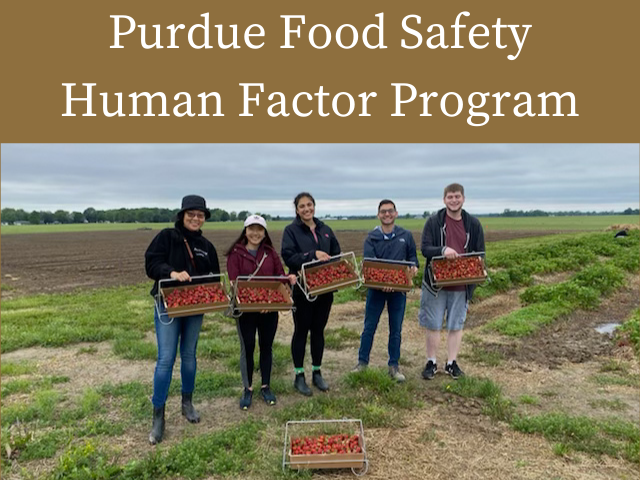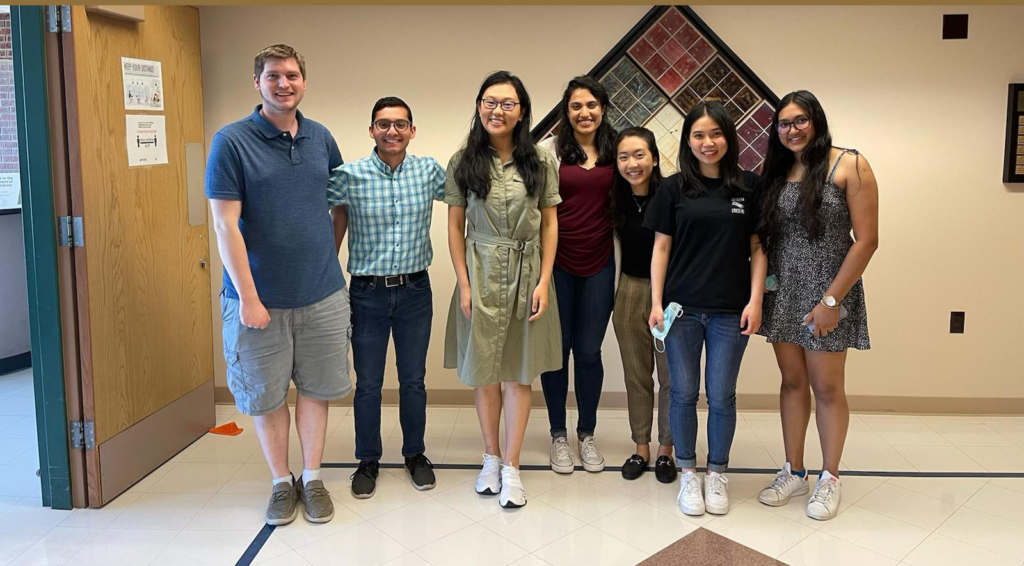By Shawnte Loeri, Communications Associate, PFSE
Food is necessary for all human beings to survive. Preparing and eating food plays a huge role in all cultures, giving us joy in our lives and bringing us together. Not only do we want delicious food to eat with our families and friends, but we want that food to be safe.
Why is food safety education important? According to the CDC, 48 million people get sick each year from eating contaminated food. To help prevent these foodborne illnesses, we all play a role in handling food safely. Whether we are food suppliers, manufacturers, or consumers, we play a significant part in keeping food safe from the farm to the table.
A key element in influencing food handling behaviors is representation. People must see themselves in food safety messaging, which includes the person who delivers the messages. Representation matters.
That’s why the Partnership for Food Safety Education (PFSE) is celebrating Asian American and Pacific Islander Heritage Month (AAPI) by sharing the experience of community-based food safety educators like Dr. Yaohua “Betty” Feng, assistant professor/extension food safety specialist with Purdue University. She is helping to educate underrepresented communities on proper food handling and hand hygiene in the home.
Betty graciously took the time to share her experience as an educator, her thoughts on representation in food safety, and what excites her the most about her work to prevent foodborne illnesses in her community.
How it all began
Betty became interested in the food safety field at a young age. Her father was a HACCP-certified seafood processor in a small city. There weren’t a lot of resources to learn about food safety management, and her father didn’t have a food science degree to create his own food safety plans. Betty wanted to help her father, processors, and other food “guardians” to build their own food safety plans and to increase their compliance with food safety regulations. Thus, her love and passion for food safety education began.
The Feng Lab at Purdue
Betty currently leads the Food Safety Human Factor Lab (also called Feng’s Lab) at Purdue University. This program was created in 2018 to bridge gaps between knowledge and practice in consumer food safety. Betty and her students are committed to using sociological approaches to explore cultural, social, and environmental factors that affect food safety behavior at home.



“My research and extension programs are closely integrated with a focus on decision making and behavior change in food safety,” says Dr. Betty Feng. “It’s widely known that increased knowledge level does not necessarily result in food handling behavior changes among food workers. Behavior change is the ultimate goal for food safety education and extension.”
Regarding her work, Betty acknowledges that many factors are associated with behavior change, including awareness, perception, culture, self-efficacy, and social norms. Her lab studies those factors and refers to them as “human factors” in food safety. Betty’s research programs identify and intervene in human factors in food safety management by means of innovative communication and education approaches. Her extension programs utilize those interventions to respond to food handlers’ unique learning needs.
What makes working in the lab a great experience for students? Betty shares that the students get a chance to learn about approaches to examining human factors in food safety management. They work with food handlers, who are the “guardians” of food safety. The experience gained from their work can be applied in a wide variety of career opportunities, including consumer insights and science communication.
Representation matters in food safety education
Betty says representation matters because underrepresented communities are at heightened risk due to the unique barriers they face, including lack of knowledge of some food safety practices, neighborhood geographical factors, cultural factors, and insufficient food handling tools.
The Feng Lab has developed extension programs that engage underrepresented communities in protecting themselves and their families from foodborne illness. They have conducted focus group sessions with 82 Hispanic and African-American families with young children and made home visits with 30 families. Her team identified the need for culturally-tailored food safety programs for low-income families, including (1) providing explanations about best practices; (2) delivering food safety education via trusted sources; and (3) developing strategies that account for participants’ environmental and financial situations. The Lab also designed and implemented a virtual food safety program that resulted in significant self-reported behavior change among participants.
The future of food safety education
Betty says there is a current trend in multi-disciplinary collaboration in food safety education. Not only collaborating with extension educators but other researchers and health information influencers. The Feng Lab is currently using some new tools to measure food handlers’ behavior changes, including eye-tracking. She’s really excited about this aspect of her work.
“My work on food safety needs the support of the Partnership for Food Safety Education to increase the impact by training the trainers,” says Dr. Feng. “Food safety education is part of the hurdle technology that improves food safety in our supply chain. I invite all educators to learn more and to support your loved ones’ decision-making regarding safe food handling.”
Thank you, Betty, for all your hard work in food safety education!
Dr. Yaohua “Betty” Feng is an assistant professor/extension food safety specialist with Purdue University. She can be reached at yhfeng@purdue.edu.